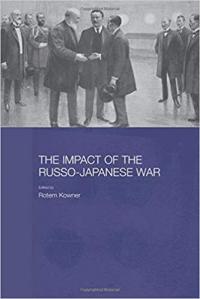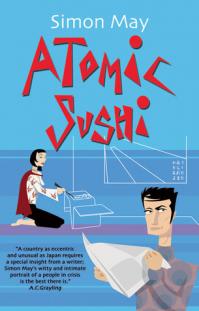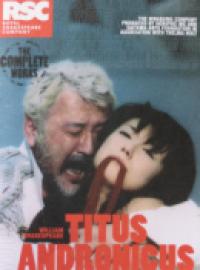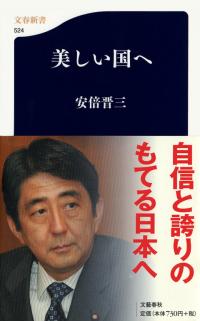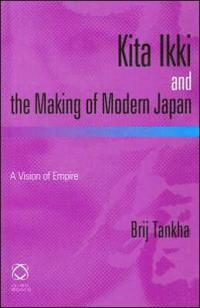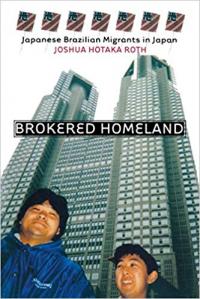The Japan Society Review
The Japan Society Review is an digital publication covering Japan-related books and films, as well as theatre and stage productions, tv series and exhibitions. Published since 2006, it is released now on a quarterly basis and is available online on our website. Its purpose is to inform, entertain and encourage readers to explore the works for themselves.
The Japan Society Review is possible thanks to the work of volunteers who dedicated their time and expertise to help us to promote the learning and understanding of Japanese culture and society.
To become a reviewer, please fill the form here and let us know a little about you, your professional or academic background, your interest, passion or expertise regarding Japan and the type of works you would like to review.
If you have any questions, please contact reviews@japansociety.org.uk.
Books
The Impact of the Russo-Japanese WarEdited by Rotem Kowner Examining the wide impact of the war and exploring the effect on the political balance in northeast Asia, this book focuses on the reactions in Europe, the United States, East Asia and the wider colonial world, considering the impact on different sections of society, on political and cultural ideas and ideologies, and on various national independence movements. Review by Ian Nish
Books
Atomic Sushi: Notes from the Heart of JapanBy Simon May Each chapter of this title focuses on some everyday human matter, such as love, death, bureaucracy, hygiene, food, toilets, commuting, education, marriage and memory. Japanese attitudes to such issues are explored through a mixture of light-hearted anecdote and trenchant analysis. Review by Sir Hugh Cortazzi
Books
Atomic Sushi: Reader's CommentsBy Simon May British readers will find Simon May's "Atomic Sushi" interesting and very amusing, any Japanese reader will find it insulting. It is stated on a preliminary page, "This is a work of fiction," so what is fiction and what is fact? Reader's Comments by Ann Dent
Books
China and the Global Energy Crisis - Development and Prospects for China's Oil and Natural GasBy Tatsu Kambara and Christopher Howe China's emergence as an energy importer has given rise to concerns that it is a major contributor to recent turmoil in energy markets. This book examines China's record of oil and gas development, its refining capacity, and energy prospects. The authors conclude that there are no fundamental reasons for anxiety about China's demands on the world energy economy, but they emphasize that its energy future will depend critically on a continuation of reform and internationalization. China and the Global Energy Crisis is a concise but detailed study of these issues. Review by J. Sean Curtin
Books
Britain and Japan: Biographical Portraits, Volume VIEdited by Sir Hugh Cortazzi At one end, we have scholarly studies, such as Peter O'Connor's piece on the journalist Hugh Fulton Byass, which actually manages to cram an account of the fortunes of the entire English language press before World War II in Japan into 12 pages; at the other extreme, there is Roger Buckley's elegant meditation of under five pages on the difficulty of knowing just what experiences the cult British novelist, Angela Carter, actually had in Japan. Some pieces are based on research; others are personal memoirs - including no less than three accounts written by relatives or descendants of the subjects - containing much information not available elsewhere. Review by Adrian Pinnington
Theatre & Stage
Titus AndronicusDirected by Yukio Ninagawa, produced by Horipro Inc and the Saitama Arts Foundation in association with Thelma Holt As part of the Royal Shakespeare Company's the Complete Works Festival, legendary director Yukio Ninagawa's Japanese language production of Shakespeare's bloodiest play was transported around the globe to Stratford-upon-Avon for just ten performances. Although Titus Andronicus is not so frequently performed, it's a strangely compelling tale of intense violence and horrific retribution. Ninagawa masterfully utilizes these extremes to create a brilliant new interpretation which creates the illusion that Japanese is Shakespeare's original language. Review by Sean Curtin
Books
Utsukushii Kuni E (Toward a Beautiful Country)By Shinzo Abe Prime Minister Shinzo Abe, at 53 the youngest to hold that office in the post-war period, has written a revealing book about his life, political philosophy, and vision for a good society. The timing of its publication was impeccable as the book hit the stores just before he was elected to the premiership. The book, "Toward A Beautiful Country," swiftly rose on the bestseller lists. Review by Fumiko Halloran
Books
Japan Be a Strong Nation (Nihonyo Tsuyoki Kuni to Nare)By Yoshiko Sakurai Because of her seemingly nationalistic and anti-Chinese stance, Ms. Sakurai has become a very popular figure in Japan, especially among conservative Japanese, both young and old. Having read all the chapters of this book, however, one might wonder if she is a real nationalist as a Japanese (like Tokyo Governor Shintaro Ishihara, who is well known for his book "The Japan That Can Say No") or a hard-core anti-communist conservative as an opinion leader regardless of her nationality. Actually, she is relatively optimistic about American intentions to support Japan (for example, she denies a change in American stance toward North Korea), whereas she is overly critical of almost any move on the part of China. Review by Takahiro Miyao
Books
Kita Ikki and the Making of Modern Japan: A Vision of EmpireBy Brij Tankha This important new study of Kita Ikki, one of Japan’s influential pre-war idealogues, focuses on the twin poles of nationalism and socialism that inform his three principal works, located always in the context of the dominance of Western imperialism at that time. Review by Ben-Ami Shillony
Books
Brokered Homeland: Japanese Brazilian Migrants in JapanBy Joshua Hotaka Roth The interactions between Nikkeijin and natives, says Joshua Hotaka Roth, play a significant role in the emergence of an increasingly multicultural Japan. He uses the experiences of Japanese Brazilians in Japan to illuminate the racial, cultural, linguistic, and other criteria groups use to distinguish themselves from one another. Roth's analysis is enriched by on-site observations at festivals, in factories, and in community centers, as well as by interviews with workers, managers, employment brokers, and government officials. Review by Takahiro Miyao


